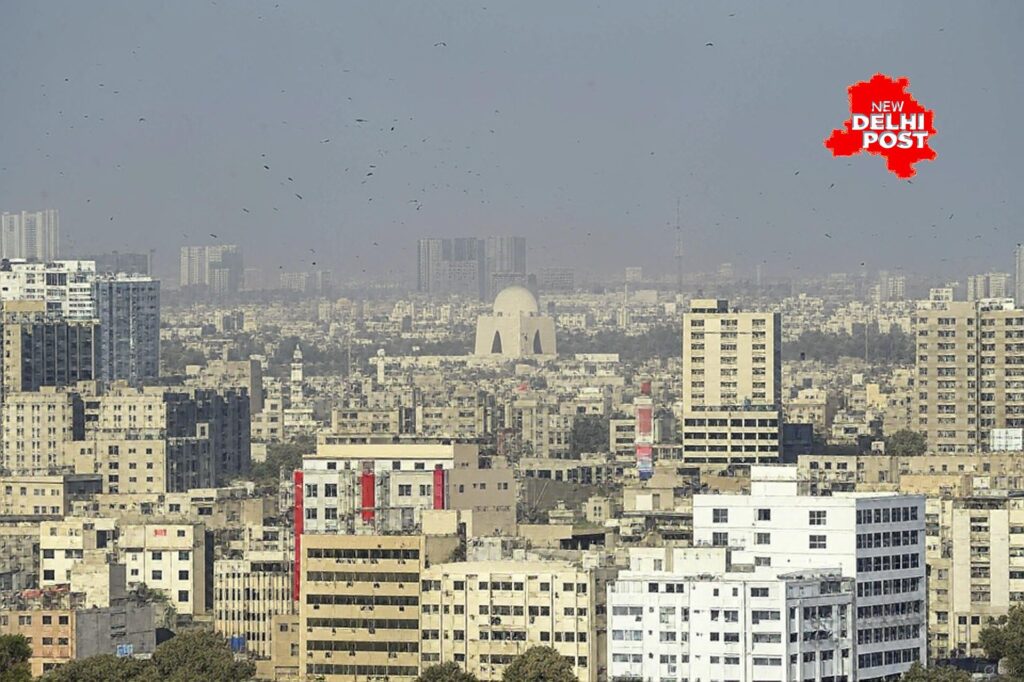Pakistan’s largest city faces relentless tremors, with experts warning of a potential major quake this Friday, driven by tectonic unrest at the Indian Plate boundary.
Karachi: Pakistan’s bustling metropolis of Karachi is in the grip of fear as 21 mild earthquakes have rattled the city in just 48 hours, starting Sunday night. With tremors ranging from 2.1 to 3.6 in magnitude, residents are sleepless, haunted by the possibility of a larger quake looming, particularly on Friday or Saturday night, as warned by experts.
A City on Edge
The Pakistan Meteorological Department (PMD) reported that the tremors, felt across areas like Gadap, Quaidabad, Malir, and Korangi, have caused minor damage, including cracks in buildings and a highway, and a collapsed wall at Malir Jail, leading to 216 prisoners escaping. Despite no reported casualties, the relentless jolts have sparked panic. “People are afraid to sleep indoors,” said Ayesha Siddiqui, a local shopkeeper. The strongest quake, a 3.6-magnitude tremor on Sunday, set off the initial alarm, with aftershocks continuing unabated.
Indian Plate Connection
Experts attribute the seismic swarm to Karachi’s precarious position near the convergence of the Indian, Eurasian, and Arabian tectonic plates. Dr. Imran Ahmed Khan from Karachi University’s Geography Department explained, “An imbalance between these plates is triggering these tremors, with small fault lines in Korangi and Malir releasing energy.” Pakistan lies on the north-western edge of the Indian Plate, which collides with the Eurasian Plate, making it one of the world’s most seismically active regions. A 2024 study by the Pakistan Earthquake and Research Centre noted that Karachi’s proximity to these fault lines heightens its vulnerability, with historical data showing a 5.0-magnitude quake in 1983 causing significant damage.
Warnings of a Bigger Quake
Shahbaz Laghari, CEO of the Pakistan Earthquake and Research Centre, claimed his team predicted these tremors and warned that Friday and Saturday nights could be critical. “The Sindh government must alert the public in advance,” he urged. However, PMD Director General Mahr Sahibzad Khan downplayed the risk, stating, “These mild quakes will subside within days as the plates stabilize, and a major earthquake is unlikely.” Contrarily, independent geologist Dr. Faisal Rehman cautioned, “Our research shows small tremors often precede a larger quake, and Karachi’s fault lines are active.” This division among experts has fueled public anxiety, with posts on X reporting 26–27 tremors over four days, amplifying fears of an impending “doomsday.”
A Call for Preparedness
The National Tsunami Centre issued a warning about active fault lines, predicting continued low-intensity quakes but no tsunami risk. Past incidents, like the 2013 Balochistan quake that killed 39, underscore Pakistan’s seismic vulnerability. Residents are urged to avoid poorly constructed buildings, common in Karachi’s sprawling slums. “We need better infrastructure and public awareness,” said urban planner Sana Mir. The government has deployed emergency teams, but critics argue preparedness remains inadequate. As Karachi braces for a tense weekend, the city’s fate hangs in the balance of its restless tectonic plates.


